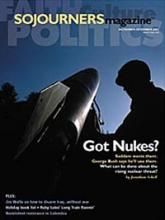For more than 50 years, Isabel Gonzalez, 84, has been visiting a particular roadside ditch near her village in the Castilian hills, surreptitiously leaving flowers. The bodies of her brother and brother-in-law were dumped there on November 5, 1937—eight hours after they surrendered to the Nationalist forces of Spanish dictator Francisco Franco. Asuncion Alvarez, 87, has a similar story. She drew a map for her children leading to a spot in a field near her town. She was afraid that when she died, the location of her brothers' secret grave would die with her.
All over Spain, the bones of Franco's victims are rubbing their way to the surface. For the past two years, the Association for the Recovery of Historical Memory has been working to map and excavate the hidden mass graves that dot the Spanish countryside. As the graves are opened, relatives and friends step forward. "They have been unable to speak of these things for 60 years," says ARHM spokesperson Santiago Macias. "It is difficult for them to break the silence, but they will."
But why? In an era when uncovering graves, establishing truth commissions, opening military files, and documenting survivor testimonies are used increasingly as mechanisms for obtaining social justice, it seems worth asking whether "breaking the silence" is always a good thing. After all, some compelling arguments can be made against it.
Truth-telling—on the scale of a family or a nation—may disrupt precarious power dynamics. In a family, it could lead to separation, divorce, abandonment, or loss of intimacy. In a nation, truth-telling may jeopardize a tenuously negotiated peace and plunge the country back into social chaos.
Read the Full Article
